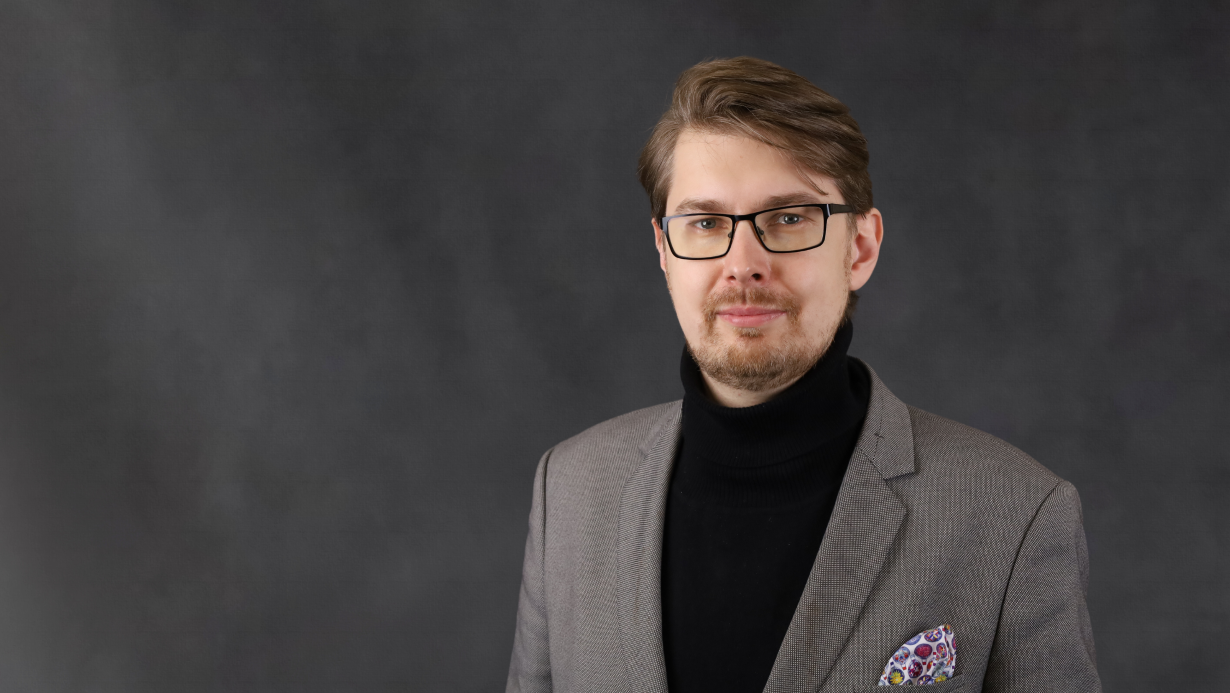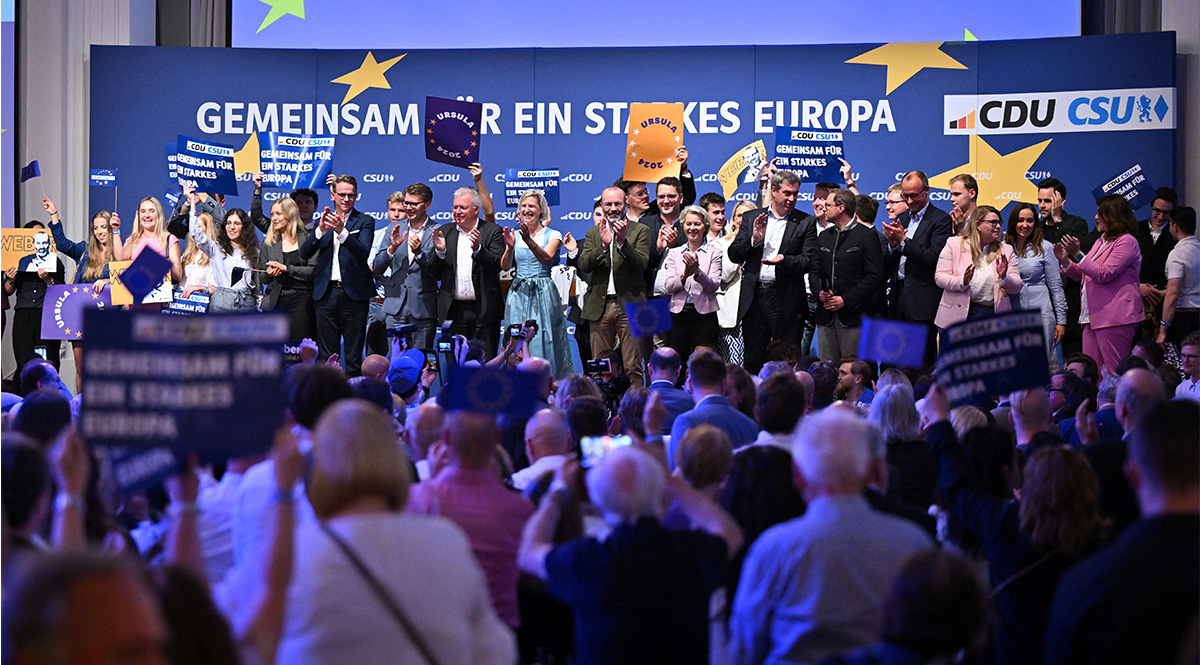Early Elections? Situation with Germany's Ruling Coalition Uncertain
The results of parliamentary elections in Germany’s eastern states have confirmed the decline in support for the parties that make up Chancellor Olaf Scholz’s government. The success of the extreme right-wing Alternative for Germany (AfD) and left-wing populist Sahra Wagenknecht’s Alliance (BSW), advocating for, among other things, withholding German aid to Ukraine and peace negotiations with Russia, make the situation of the three-party government coalition (SPD-Green-FDP) precarious. Further conflicts between the coalition partners can be expected during the process in the Bundestag over the draft budget for 2025. The scenarios of a minority government or even early elections are not excluded.
(1).jpg) Lisi Niesner / Reuters / Forum
Lisi Niesner / Reuters / Forum
Changes in the German Political Scene
The September elections in the eastern Bundesländer (Thuringia, Saxony, and Brandenburg) confirmed that rapid and structural changes are taking place on the German political scene. The AfD was successful, winning a state election for the first time ever (in Thuringia) and coming in second place in Saxony (behind the CDU) and Brandenburg (behind the SPD). In each of these three states, the BSW, which has only been in existence since January, won third place. Both parties benefited from growing fears of irregular migration and declining public interest in Russian aggression against Ukraine. Both the AfD and the BSW have sought to capitalise on this sentiment by formulating demands to close Germany’s borders to migrants, stop supporting Ukraine, and allocate the funds “saved” in this way to public services. They also want a return to cooperation with Russia. The CDU of Saxony has taken up some of these demands, but in a softer form—in the context of Ukraine, it calls for an organic reduction in German support, but not an end to it. Despite its high support, the AfD, as in previous years, will be isolated by the other parties as a group considered extremist and a threat to democracy. Maintaining the cordon sanitaire in the eastern states, however, will require the participation of the BSW in government coalitions. Despite its controversial agenda, Sarha Wagenknecht’s party is considered leftist-populist rather than anti-systemic, which makes cooperation with it more likely to be acceptable than with the AfD of any kind.
In eastern Germany, the two parties in the coalition that has been in power since autumn 2021—the Greens and the Liberals of the FDP—failed to cross the electoral threshold. Their defeat is due to voter disappointment with the policies of Chancellor Scholz’s government and the way the SPD-Green-FDP “traffic light” coalition has operated. Due to its tri-party nature, important decisions are made as a result of lengthy negotiations, which is perceived by the public as a lack of agility on the part of those in power. Fears of migration, economic stagnation, and the high cost of living have made the parties’ previous message based on the energy transition (Greens) and slogans of low taxes and avoiding an increase in public debt (FDP) no longer attractive to voters.
The SPD recorded poor results in Thuringia and Saxony (6% and 7%, respectively). The Social Democrats lost their mass party status in these states to the AfD. Contrary to the polls, however, the SPD scored a victory in Brandenburg, overtaking the AfD by 1.7 percentage points. This was due to the personal popularity of Prime Minister Dietmar Woidke, who took up some of the AfD’s and BSW’s slogans in the election campaign, such as the need to strengthen controls on the border with Poland and diplomatic negotiations with Russia. The specific nature of the state, in which the Social Democrats have ruled uninterruptedly since German reunification, also played its part.
Influence on Federal Politics
Elections in the eastern states and June’s European Parliament elections have indicated a permanent loss of popularity for the parties that make up the ruling coalition. Their defeat in the Bundestag elections scheduled for September 2025 is highly likely. The SPD’s victory in Brandenburg has temporarily strengthened the incumbent Chancellor’s position because it has put the brakes on the discussion of fielding another SPD candidate for the post next year. Scholz’s public ratings, however, remain low. According to an October survey for ARD television, only 21% of respondents say they are satisfied with him, in contrast to SPD Defence Minister Boris Pistorius, who enjoys the highest level of trust, with 54% of respondents.
The electoral defeats of the Greens and FDP indicate that these parties are bearing the greatest political costs of governing. Due to their status as minority coalition partners, they have limited influence on decisions, but in the public’s perception they are fully responsible for them. In reaction to the election results, the Greens co-chairs Ricarda Lang and Omid Nouripour announced that they would step down from their posts. This opened a discussion about the Greens’ continued existence in the coalition and the necessary programmatic changes, especially in the direction of tightening asylum policy. In turn, FDP leader and Finance Minister Christian Lindner announced that autumn 2024 would be the time for decisive decisions, signalling the possibility of the party leaving the coalition unless its demands, such as the introduction of business facilitations, are met.
The CDU’s victory in the Saxony and European elections has confirmed the party’s strong position as the leader in the polls and the main opposition force to the Scholz government. The Christian Democrats have been consistently putting pressure on the coalition, accusing it of ineptitude in economic policy and of weakening Germany’s position internationally, especially in the EU. After the elections, Sahra Wagenknecht’s negotiating position strengthened, making the BSW’s entry into the state governments conditional on the realisation of the aforementioned pro-Russian demands. Although foreign policy issues remain outside the competence of the state governments, BSW’s demands are becoming an important part of the federal political discourse, putting pressure on both the SPD-Green-FDP coalition and the Christian Democrats. Although the leaders of these parties emphasise the immutability of German commitments to help Ukraine, state activists seeking cooperation with the BSW are attempting to adopt some of the party’s demands. The prime minister of Brandenburg and the CDU leaders of Saxony and Thuringia issued a joint call on 4 October for Germany to engage in talks between Ukraine and Russia as an intermediary to “freeze” the conflict. The idea is in keeping with the traditional vision of Germany as a “bridge” between Russia and the West for parts of the German elite and public.
Vague Prospects for the Government for 2025
The results of the September elections mark the beginning of the Bundestag election campaign amid a gradual disintegration of the ruling coalition. In order to regain the support of some voters, the leaders of the SPD, the Greens, and the FDP will move toward emphasising their own programmatic demands and separateness from their coalition partners. The Social Democrats and Greens advocate an active role for the state in the economy, expansion of social benefits and continuation of the energy transition. They also call for making the state’s debt incurrence rules more flexible. For the FDP, on the other hand, the key issues shaping the party’s identity are low taxes, lowering public spending, and defending the so-called debt brake rule.
A subject of particular dispute will therefore be the final shape of the 2025 budget, especially the scale of social spending. The final shape of the SPD’s priority pension reform, in particular the level of contributions and the role of private insurance, may also become a field of conflict. The entry into force of the so-called Growth Initiative, an FDP-backed business facilitation package, also remains uncertain.
Rejection of the FDP’s demands could lead to conflict with the SPD and the Greens and, consequently, the party leaving the coalition, arguing that it is defending liberal values. Given the weak ratings of the SPD and the Greens, a minority government is a likely scenario. Earlier elections would be possible if there was a chance for a strong rise in support for the ruling parties, for example, after a peace agreement between Ukraine and Russia was concluded with German participation. This would strengthen the image of the Chancellor and the government, while weakening the AfD and BSW.
Conclusions
Party leaders have not made any binding decisions yet on the future of the coalition. In light of the polls, its breakup would entail a high risk of further loss of popularity for both the Liberals as a party possibly breaking the coalition, as well as the SPD and the Greens. The next few months will be characterised by further tensions between the coalition partners, which will hamper and slow down decision-making processes in the government. Given the scale of differences and mutual distrust, a breakup of the coalition and early elections in the spring of 2025 cannot be ruled out.
The uncertain political situation over the next year will further weaken Germany’s position on the international stage. The attention of policymakers and the public will focus on domestic economic and political problems. In the outlook for the next year, one should also not expect significant German initiatives related to the debate on EU reform or relations with Poland, either bilaterally or within the Weimar Triangle. Poland should be prepared for the extreme and pro-Russian AfD and BSW to have increasing influence on the public debate in Germany regarding the continuation of aid to Ukraine and the public’s attitude towards Russia. Chancellor Scholz’s main foreign policy goal in this scenario will be to seek German participation in peace negotiations between Ukraine and Russia.




.png)
.jpg)